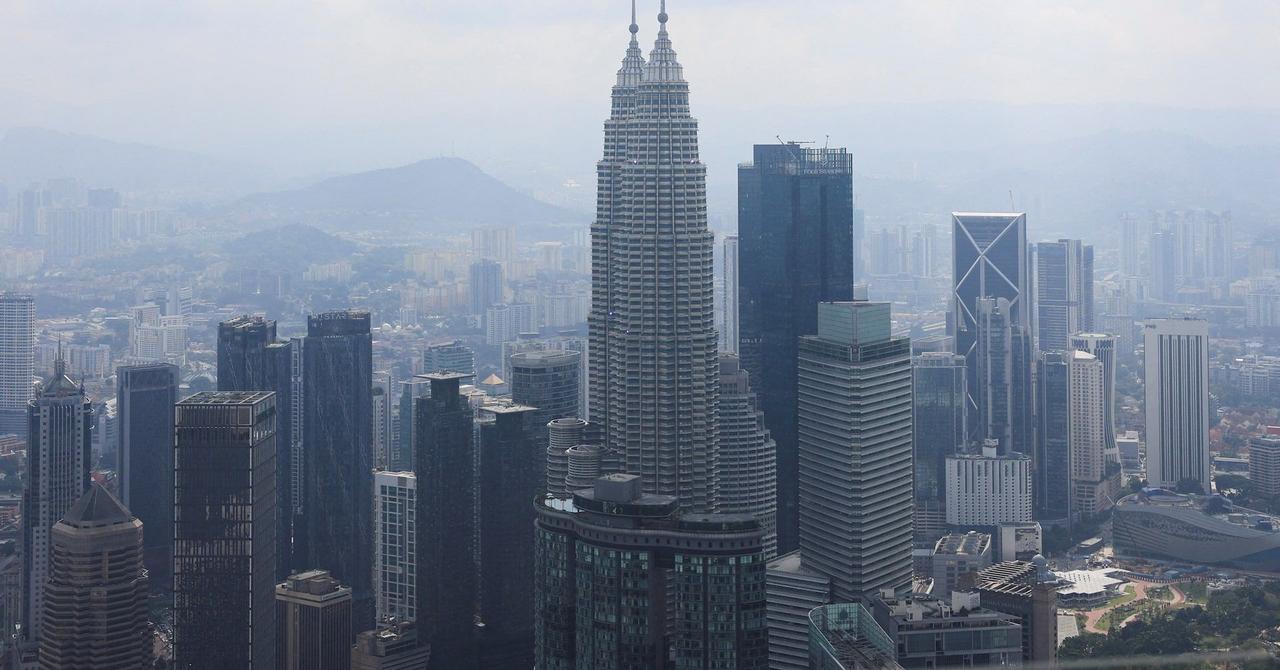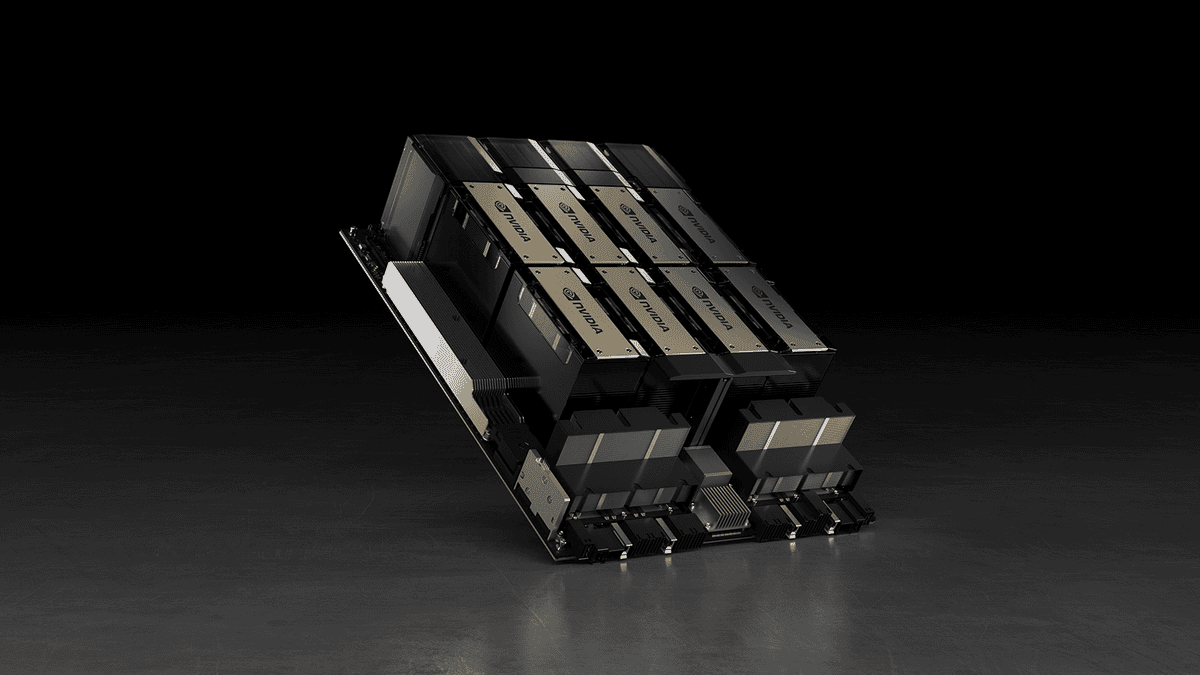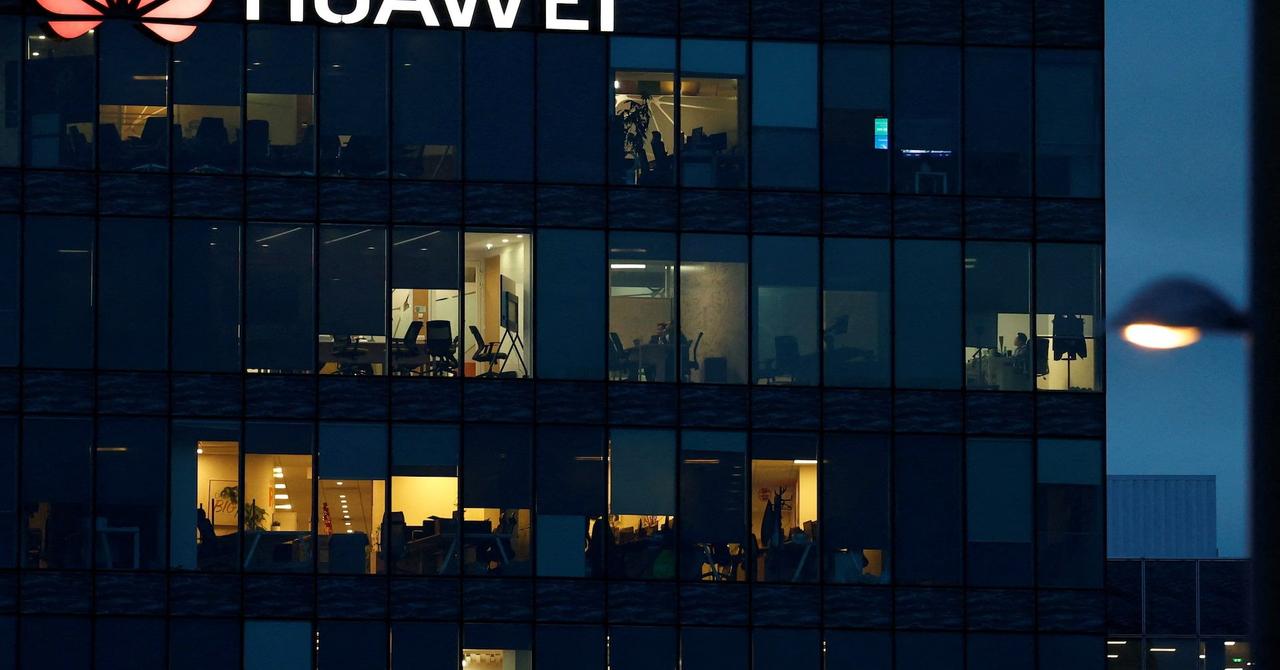Malaysia Curbs Data Center Growth, Impacting China's AI Chip Access
3 Sources
3 Sources
[1]
Malaysia reins in data centre growth, complicating China's AI chip access
BEIJING/KUALA LUMPUR/SINGAPORE, Sept 12 (Reuters) - Malaysia, a hotspot for data centres, is reining in the pace of expansion in a move industry insiders and analysts expect will hinder China's efforts to gain access to powerful chips that are crucial to improving its artificial intelligence capabilities. The Southeast Asian country has drawn in data centre investments from U.S. technology giants like Microsoft (MSFT.O), opens new tab, Amazon (AMZN.O), opens new tab, Alphabet's (GOOGL.O), opens new tab Google and their Chinese counterparts Tencent (0700.HK), opens new tab, Huawei and Alibaba (9988.HK), opens new tab in recent years, spurred by cheap land and electricity costs and robust local AI demand prospects. More than two-thirds of data centre capacity under construction in Southeast Asia's five main growth markets has been committed in Malaysia, according to data centre consultancy DC Byte. Spillover from more expensive Singapore has driven companies to commit to more data centres in the neighbouring Malaysian state of Johor. But the data centre boom has begun to slow as Malaysia grapples with power grid capacity and water resource constraints and pressure from Washington to not allow Chinese firms to use the region as a backdoor to access U.S.-made AI chips that are under export controls. Malaysia, China's largest trading partner in Southeast Asia, announced in July it was requiring permits for all exports, trans-shipments and transits of U.S.-made high-performance chips, such as those made by Nvidia (NVDA.O), opens new tab. Chinese-made replacements for the U.S. chips are still subpar alternatives for the sustainment and development of cutting-edge Chinese AI models and applications that can compete with their U.S. rivals. The new restrictions leave regulatory wriggle room for Chinese data centres to import U.S. chips for in-country use. However, scrutiny on these projects is bound to increase, experts say, as Malaysia tries to finalise a trade deal with the United States. The U.S. Commerce Department has raised concerns that data centres outside China could purchase AI chips to train AI models in China, including to support military uses, said Collmann Griffin, a lawyer at Miller & Chevalier who previously served as a U.S. government sanctions policy adviser. The U.S. Commerce Department did not respond to a request for comment. 'AI BELT AND ROAD' The overseas push by China began soon after it released a three-year action plan for Chinese data centre operators in 2021, calling on the firms to expand abroad, especially in countries signed onto Xi Jinping's flagship overseas development Belt and Road Initiative, of which Malaysia is a signatory. At the end of Xi's visit to Malaysia in April, the countries released a joint statement that pledged growing cooperation on "data linkages", 5G infrastructure and AI, pointing to the growing political momentum underlying China's data centre capacity expansion in Malaysia. GDS Holdings , one of China's largest data centre operators, two years ago began operating a hyperscale data centre campus in Johor, a massive project that is still being expanded. But as the U.S. continues to target China's AI capabilities, GDS has gradually reduced its stake in the Singapore-headquartered subsidiary that managed its overseas data centres and spun it off into an independent entity called DayOne in January. Lee Ting Han, Johor state's data centre development coordination vice chair, said Chinese firms' "rebranding" is likely to be aimed at diversifying their client base "because they know very well what's happening, the trade tension is moving." At the groundbreaking of DayOne's first data centre in Singapore in July, CEO Jamie Khoo said that the company always intended to split its business from its Chinese parent as both companies operate under different regulatory regimes. Singapore had a three-year moratorium of new data centre builds until January 2022 due to power and water constraints, before announcing last year that it would unlock just 300 megawatts (MW) of data centre capacity "in the near term". As of December 2024, Johor had 12 operational data centres with a combined estimated capacity of 369.9 MW and an additional 28 were planned for future development, representing an estimated capacity of 898.7 MW, according to a Knight Frank report. Johor has emerged as Malaysia's leading data centre investment hub with 42 projects worth 164.45 billion ringgit ($39.08 billion) approved as of the second quarter of 2025 contributing 78.6% of the country's operational IT capacity, the state's chief minister said last month. Its proximity to Singapore means Johor benefits from lower-latency connections to the city-state's other data centres. But Johor has begun to step on the brakes, introducing a vetting committee last year for data centre projects that rejected about 30% of applications as of late 2024 for failing to demonstrate sustainable practices for water and energy usage, Lee said. The approval rate has gone up as applicants become more familiar with the process, he added. Vivian Wong, a senior analyst at DC Byte, said Southeast Asian countries like Malaysia were attractive markets for Chinese data centre expansions due to geographic proximity, relatively lower political friction and growing digital infrastructure demand. "However, as Southeast Asia faces increased scrutiny and tariffs, this may potentially reap lesser success when compared to earlier years, especially in markets known to host Chinese-backed operations that are also targeted by the Trump administration," she said. ($1 = 4.2080 ringgit) Reporting by Eduardo Baptista in Beijing, Ashley Tang and Danial Azhar in Kuala Lumpur, Jun Yuan Yong in Singapore; Editing by Miyoung Kim and Jamie Freed Our Standards: The Thomson Reuters Trust Principles., opens new tab
[2]
Malaysia reins in data centre growth, complicating China's AI chip access - The Economic Times
Malaysia, a hotspot for data centres, is reining in the pace of expansion in a move industry insiders and analysts expect will hinder China's efforts to gain access to powerful chips that are crucial to improving its artificial intelligence capabilities. The Southeast Asian country has drawn in data centre investments from US technology giants like Microsoft, Amazon, Alphabet's Google and their Chinese counterparts Tencent, Huawei and Alibaba in recent years, spurred by cheap land and electricity costs and robust local AI demand prospects. More than two-thirds of data centre capacity under construction in Southeast Asia's five main growth markets has been committed in Malaysia, according to data centre consultancy DC Byte. Spillover from more expensive Singapore has driven companies to commit to more data centres in the neighbouring Malaysian state of Johor. But the data centre boom has begun to slow as Malaysia grapples with power grid capacity and water resource constraints and pressure from Washington to not allow Chinese firms to use the region as a backdoor to access US-made AI chips that are under export controls. Malaysia, China's largest trading partner in Southeast Asia, announced in July it was requiring permits for all exports, trans-shipments and transits of US-made high-performance chips, such as those made by Nvidia. Chinese-made replacements for the US chips are still subpar alternatives for the sustainment and development of cutting-edge Chinese AI models and applications that can compete with their US rivals. The new restrictions leave regulatory wriggle room for Chinese data centres to import US chips for in-country use. However, scrutiny on these projects is bound to increase, experts say, as Malaysia tries to finalise a trade deal with the United States. The US Commerce Department has raised concerns that data centres outside China could purchase AI chips to train AI models in China, including to support military uses, said Collmann Griffin, a lawyer at Miller & Chevalier who previously served as a US government sanctions policy adviser. The US Commerce Department did not respond to a request for comment. 'AI belt and road' The overseas push by China began soon after it released a three-year action plan for Chinese data centre operators in 2021, calling on the firms to expand abroad, especially in countries signed onto Xi Jinping's flagship overseas development Belt and Road Initiative, of which Malaysia is a signatory. At the end of Xi's visit to Malaysia in April, the countries released a joint statement that pledged growing cooperation on "data linkages", 5G infrastructure and AI, pointing to the growing political momentum underlying China's data centre capacity expansion in Malaysia. GDS Holdings, one of China's largest data centre operators, two years ago began operating a hyperscale data centre campus in Johor, a massive project that is still being expanded. But as the US continues to target China's AI capabilities, GDS has gradually reduced its stake in the Singapore-headquartered subsidiary that managed its overseas data centres and spun it off into an independent entity called DayOne in January. Lee Ting Han, Johor state's data centre development coordination vice chair, said Chinese firms' "rebranding" is likely to be aimed at diversifying their client base "because they know very well what's happening, the trade tension is moving." At the groundbreaking of DayOne's first data centre in Singapore in July, CEO Jamie Khoo said that the company always intended to split its business from its Chinese parent as both companies operate under different regulatory regimes. Singapore had a three-year moratorium of new data centre builds until January 2022 due to power and water constraints, before announcing last year that it would unlock just 300 megawatts (MW) of data centre capacity "in the near term". As of December 2024, Johor had 12 operational data centres with a combined estimated capacity of 369.9 MW and an additional 28 were planned for future development, representing an estimated capacity of 898.7 MW, according to a Knight Frank report. Johor has emerged as Malaysia's leading data centre investment hub with 42 projects worth 164.45 billion ringgit ($39.08 billion) approved as of the second quarter of 2025 contributing 78.6% of the country's operational IT capacity, the state's chief minister said last month. Its proximity to Singapore means Johor benefits from lower-latency connections to the city-state's other data centres. But Johor has begun to step on the brakes, introducing a vetting committee last year for data centre projects that rejected about 30% of applications as of late 2024 for failing to demonstrate sustainable practices for water and energy usage, Lee said. The approval rate has gone up as applicants become more familiar with the process, he added. Vivian Wong, a senior analyst at DC Byte, said Southeast Asian countries like Malaysia were attractive markets for Chinese data centre expansions due to geographic proximity, relatively lower political friction and growing digital infrastructure demand. "However, as Southeast Asia faces increased scrutiny and tariffs, this may potentially reap lesser success when compared to earlier years, especially in markets known to host Chinese-backed operations that are also targeted by the Trump administration," she said.
[3]
Malaysia reins in data centre growth, complicating China's AI chip access
BEIJING/KUALA LUMPUR/SINGAPORE (Reuters) -Malaysia, a hotspot for data centres, is reining in the pace of expansion in a move industry insiders and analysts expect will hinder China's efforts to gain access to powerful chips that are crucial to improving its artificial intelligence capabilities. The Southeast Asian country has drawn in data centre investments from U.S. technology giants like Microsoft, Amazon, Alphabet's Google and their Chinese counterparts Tencent, Huawei and Alibaba in recent years, spurred by cheap land and electricity costs and robust local AI demand prospects. More than two-thirds of data centre capacity under construction in Southeast Asia's five main growth markets has been committed in Malaysia, according to data centre consultancy DC Byte. Spillover from more expensive Singapore has driven companies to commit to more data centres in the neighbouring Malaysian state of Johor. But the data centre boom has begun to slow as Malaysia grapples with power grid capacity and water resource constraints and pressure from Washington to not allow Chinese firms to use the region as a backdoor to access U.S.-made AI chips that are under export controls. Malaysia, China's largest trading partner in Southeast Asia, announced in July it was requiring permits for all exports, trans-shipments and transits of U.S.-made high-performance chips, such as those made by Nvidia. Chinese-made replacements for the U.S. chips are still subpar alternatives for the sustainment and development of cutting-edge Chinese AI models and applications that can compete with their U.S. rivals. The new restrictions leave regulatory wriggle room for Chinese data centres to import U.S. chips for in-country use. However, scrutiny on these projects is bound to increase, experts say, as Malaysia tries to finalise a trade deal with the United States. The U.S. Commerce Department has raised concerns that data centres outside China could purchase AI chips to train AI models in China, including to support military uses, said Collmann Griffin, a lawyer at Miller & Chevalier who previously served as a U.S. government sanctions policy adviser. The U.S. Commerce Department did not respond to a request for comment. 'AI BELT AND ROAD' The overseas push by China began soon after it released a three-year action plan for Chinese data centre operators in 2021, calling on the firms to expand abroad, especially in countries signed onto Xi Jinping's flagship overseas development Belt and Road Initiative, of which Malaysia is a signatory. At the end of Xi's visit to Malaysia in April, the countries released a joint statement that pledged growing cooperation on "data linkages", 5G infrastructure and AI, pointing to the growing political momentum underlying China's data centre capacity expansion in Malaysia. GDS Holdings, one of China's largest data centre operators, two years ago began operating a hyperscale data centre campus in Johor, a massive project that is still being expanded. But as the U.S. continues to target China's AI capabilities, GDS has gradually reduced its stake in the Singapore-headquartered subsidiary that managed its overseas data centres and spun it off into an independent entity called DayOne in January. Lee Ting Han, Johor state's data centre development coordination vice chair, said Chinese firms' "rebranding" is likely to be aimed at diversifying their client base "because they know very well what's happening, the trade tension is moving." At the groundbreaking of DayOne's first data centre in Singapore in July, CEO Jamie Khoo said that the company always intended to split its business from its Chinese parent as both companies operate under different regulatory regimes. Singapore had a three-year moratorium of new data centre builds until January 2022 due to power and water constraints, before announcing last year that it would unlock just 300 megawatts (MW) of data centre capacity "in the near term". As of December 2024, Johor had 12 operational data centres with a combined estimated capacity of 369.9 MW and an additional 28 were planned for future development, representing an estimated capacity of 898.7 MW, according to a Knight Frank report. Johor has emerged as Malaysia's leading data centre investment hub with 42 projects worth 164.45 billion ringgit ($39.08 billion) approved as of the second quarter of 2025 contributing 78.6% of the country's operational IT capacity, the state's chief minister said last month. Its proximity to Singapore means Johor benefits from lower-latency connections to the city-state's other data centres. But Johor has begun to step on the brakes, introducing a vetting committee last year for data centre projects that rejected about 30% of applications as of late 2024 for failing to demonstrate sustainable practices for water and energy usage, Lee said. The approval rate has gone up as applicants become more familiar with the process, he added. Vivian Wong, a senior analyst at DC Byte, said Southeast Asian countries like Malaysia were attractive markets for Chinese data centre expansions due to geographic proximity, relatively lower political friction and growing digital infrastructure demand. "However, as Southeast Asia faces increased scrutiny and tariffs, this may potentially reap lesser success when compared to earlier years, especially in markets known to host Chinese-backed operations that are also targeted by the Trump administration," she said. (Reporting by Eduardo Baptista in Beijing, Ashley Tang and Danial Azhar in Kuala Lumpur, Jun Yuan Yong in Singapore; Editing by Miyoung Kim and Jamie Freed) By Eduardo Baptista, Ashley Tang and Jun Yuan Yong
Share
Share
Copy Link
Malaysia is slowing down data center expansion due to resource constraints and U.S. pressure, potentially hindering China's access to crucial AI chips. This move is expected to impact the AI industry and geopolitical relations in Southeast Asia.
Malaysia's Data Center Boom and Its Challenges
Malaysia has emerged as a hotspot for data center investments, attracting major players from both the United States and China. The country's appeal lies in its cheap land and electricity costs, coupled with robust local AI demand prospects
1
. However, this rapid expansion is now facing significant hurdles, with Malaysia taking steps to rein in the pace of growth.
Source: Reuters
Resource Constraints and Regulatory Pressures
The slowdown in data center expansion is primarily driven by two factors:
-
Resource Limitations: Malaysia is grappling with power grid capacity and water resource constraints
1
. -
U.S. Pressure: There's increasing pressure from Washington to prevent Chinese firms from using the region as a backdoor to access U.S.-made AI chips that are under export controls
2
.
Impact on China's AI Capabilities
This development is expected to hinder China's efforts to gain access to powerful chips crucial for improving its artificial intelligence capabilities. In July, Malaysia announced that it would require permits for all exports, trans-shipments, and transits of U.S.-made high-performance chips, such as those made by Nvidia
3
.The 'AI Belt and Road' Initiative
China's overseas push for data centers began with a three-year action plan in 2021, encouraging firms to expand abroad, especially in countries signed onto Xi Jinping's Belt and Road Initiative
1
. This led to significant investments in Malaysia, including a hyperscale data center campus in Johor operated by GDS Holdings, one of China's largest data center operators.Related Stories
Johor: Malaysia's Data Center Hub
Johor has become Malaysia's leading data center investment hub, with 42 projects worth 164.45 billion ringgit ($39.08 billion) approved as of the second quarter of 2025
3
. However, the state has begun to implement stricter controls:- A vetting committee was introduced last year for data center projects.
- About 30% of applications were rejected as of late 2024 for failing to demonstrate sustainable practices for water and energy usage
1
.
Geopolitical Implications
The situation is further complicated by ongoing trade tensions between the U.S. and China. The U.S. Commerce Department has raised concerns about data centers outside China potentially purchasing AI chips to train AI models in China, including for military uses
2
.As Malaysia works to finalize a trade deal with the United States, scrutiny on these projects is expected to increase. This puts Malaysia in a delicate position as it balances its relationships with both China, its largest trading partner in Southeast Asia, and the United States.
References
Summarized by
Navi
[2]
[3]
Related Stories
Malaysia Implements Trade Permits for U.S. AI Chips Amid Global Export Control Concerns
14 Jul 2025•Policy and Regulation

Chinese AI Firms Bypass US Chip Restrictions by Exporting Data to Malaysia
15 Jun 2025•Technology

U.S. Pressures Malaysia to Tighten Semiconductor Regulations Amid Concerns Over AI Chip Flow to China
24 Mar 2025•Technology

Recent Highlights
1
Samsung unveils Galaxy S26 lineup with Privacy Display tech and expanded AI capabilities
Technology

2
Anthropic refuses Pentagon's ultimatum over AI use in mass surveillance and autonomous weapons
Policy and Regulation

3
AI models deploy nuclear weapons in 95% of war games, raising alarm over military use
Science and Research





